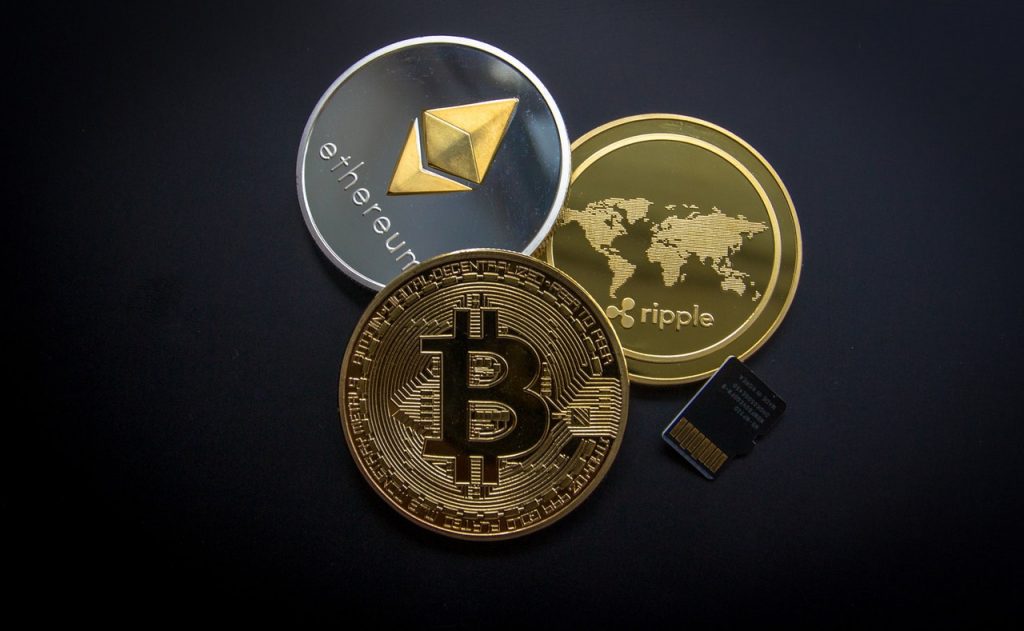Instability and risk are still what scares many investors of cryptocurrency. New scams crop up, and old ones resurge. These are real threats, not just abstract, theoretical, or made-up to create media frenzy. The threats are something you have to watch out for as they could come in any form – a fake wallet set up to trick users, phishing information to steal private cryptographic keys, and even fake cryptocurrency schemes.
You may think that cryptocurrency transactions are secure simply because they are decentralized and anonymized digital transactions. Everything on public is also validated such as tamper-resistant blockchains. Even with such measures, they don’t make cryptocurrencies less susceptible. Scammer have evolved and have relied on in other venues. News came out just this week – scams have arisen that divert funds from users’ mining rigs to malicious wallets. This is all because victims forgot to change their default login credentials. There’s also a spike in search engine phishing scams which fronts as legitimate exchanges but are actually malicious trading sites.
Don’t worry. There are ways you can guard your proponents—be it Bitcoin or Monero or anything between — against these vicious attacks. Just like how you keep your cash out of plain sight, or safely keep your jewelries in a deposit box, it also pays if you put a little effort into how you manage your cryptocurrency. The following tips don’t really guarantee an attack-proof cryptocurrency, but it’s better than doing nothing and letting your precious cryptocurrency slip away.

Cold, Hard (Digital) Cash
There’s no better way of protecting your cryptocurrency than to store is in a hardware wallet. It’s a physical device. It can be a USB where you store your private keys and currency locally, and most importantly, it must not be connected to the internet. You should not be storing large amounts of coins through cryptocurrency exchanges. This is something that experts warn against. The same applies when it comes to storing in digital wallet apps on your smartphone and computer. There are just so many ways an attacker can infiltrate and try to get your information so they can gain access to your wallet.
You can find a couple of secure hardware wallets that only cost about $100 or less. Examples are Trezor and the Ledger Nano S. Setting up your hardware wallet is simple. You will be asked to choose a PIN and a recovery “seed” (consists of words and numbers). In case you forget your PIN, the recovery “seed” is used, or your wallet malfunctions. It has a very rigid security, and keeping a copy of your PIN is very important. Make your copy accessible to you and not to home intruders.
You don’t need to have a fancy setup. Any external storage device, such as a portable hard drive, can serve as backup of your coins. The only thing that you need to do is to encrypt the data in case the back gets lost or stolen. Keeping the back up in a safe deposit box is something worth considering.
Big Spender
Approving transactions is a bit cumbersome if you use a hardware wallet. If you are a spender, expert suggests storing smaller amount of your coins in your wallet app. The bottom line here is only keep an amount you would be willing to lose. And make sure you never share to anyone your private key.
Also consider where you store your private key. This is the secret part of the public-private key set that lets you authorize revisions to a blockchain. A good practice is to always keep them encrypted. Avoid leaving them lying around on devices you frequently use for a lot of different tasks.
Extra caution as well when making transactions. The number of reliable and well-established institutions is almost the same with the gimmicky scammers who mask with Initial Coin Offerings. There was about $350 million-worth of coins that people bought when OneCoin was launched. It was thought to be the competitor of Bitcoin. It has then drawn comparisons to a Ponzi scheme. People were scammed during the legitimate ICOs. Attackers launched phishing attacks around the events and even tricked would-be investors into sending money to fake wallets.
Nail the Basics
It’s good to note that whatever you are doing to protect your information and privacy in your digital life has also helped defend your cryptocurrency as well. Philip Martin, director of security at the cryptocurrency exchange platform Coinbase says “We encourage all customers to take a few foundational, and free, actions to put them on a much more stable security footing.” You can combine a couple of methods such using a password manager or a two-factor authentication which can boost security protocols for your email address.
If want to take extra precautions, Martin suggests turning on Gmail’s new Advanced Protection feature. You can also add defenses like a PIN or password to your phone number. Doing so will make it harder for attackers to grab control of your accounts and prevent unauthorized transfer of your sim to their own device. An I.T consultant can also provide you with powerful modes of data protection. Investing in network security will safeguard you against hackers, viruses, and generally offering 24/7 threat response.
All these suggestions will bolster your digital security and especially helpful in defending you from the simplest forms of scams. Scams usually take advantage of the small things such as reused password, no second authentication requirements which are like walking in the front door of your accounts. When browsing cryptocurrency websites, it pays to approach them with cynicism. Does it appear the website was designed by a professional? Most websites also credit the website designer, so you can do a background check and search more of their portfolio to cement their legitimacy.
Make sure your friends adopt the same mindset once you have the basics in place. It works like an ecosystem. The less attractive a target it is to bad actors. New comers are clue less of how to best protect themselves and their cryptocurrency also need support. Taking the basic security steps does not require expertise in cryptography to protect you against attacks. And please, don’t lose that wallet seed.


